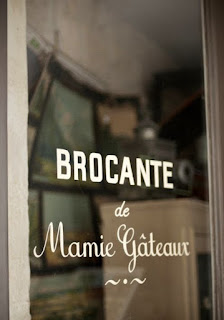There is a lot of confusion at the moment whether we will be able to take our holidays overseas this year or if we should remain in the UK for our summer breaks. I have been thinking a lot about the holidays of my childhood, although we did travel to Spain in the mid- seventies,( as package holidays were becoming more affordable) I remember going on holiday to Blackpool and caravanning in Flamborough Head (known for its picturesque lighthouse) as a child in more detail. Based in Yorkshire my family often had day trips to Scarborough, Bridlington and Whitby.
As you work your way south along the Yorkshire coast, Bridlington is the last of the four great resort towns after Whitby, Scarborough and Filey. It’s been in use as a port from prehistoric times and has been an important port for fishing ( and for collecting shellfish) since its earliest days and has a huge wealth of history that tends to be forgotten. Bridlington came into its own as a seaside resort in the Victorian era. In the main because of the recently completed railway links from Hull, Scarborough and York. Many of the Victorian buildings along the promenades still remain, most converted into hotels and guest houses although not quite as smart they were and some have seen better days, but still having a jaded grandeur like many of the UK seaside resorts. The North Promenade has lost none of its charm, both perfect for a stroll, watching the fun on the beach below or enjoying the view out to sea. I can still imagine Victorians and Edwardians going for a stroll in their best clothes and taking in the clean, salty air.
I remember the amusement arcades, bingo, donkey rides,sandcastles on the beach, traditional seafront of souvenir and sweet shops, fun fairs and fresh fish shops boasting some of the finest local catches. The harbour was great. At the top of those steps, you could smell the fish along the harbour and in the gift shops like the lovely shell shop. Small boats could take you on a mini- tour. The food stalls sold, fish and chips, waffles, lemon topped ice cream's, doughnuts, seaside rock and candyfloss, washed down with pop and Horlicks or hot chocolate to warm up. My siblings and I were often ill on the car journey home. The bracing weather, left you windswept but invigorated, we talk about blowing off the cobwebs, a fitting description of an English seaside holiday. The seagulls were (and are still) fierce in attacking careless holiday- makers who lost their meals to the sky diving birds. The boating lake and neat gardens, the mini- golf, the spa, which all seemed very grand to me as a child,with my love of history.
As an adult, not much has really changed since I was a child,
now we are in the age of package holidays and it’s cheaper or was cheaper to
spend a fortnight in sun-kissed Spain with its all-inclusive incentives that
spend a week on the Yorkshire coast with the prospect of rain and wind rather
than sun. However, it’s a great place for families seeking a traditional
seaside holiday with its long wide beaches, the old market town and Bridlington quay, the harbour, the amusements and the revamped Spa offering live entertainment.
In the 1970's and 1980's, Driffield Day free coach
outings to Bridlington were popular in bringing holiday makers and in 2019 this
was relaunched to offer free coach travel from Sheffield, to encourage visitors
back to the town.
Bridlington has been a popular tourist destination since Victorian
times and perhaps as we start to look at what’s on our doorstep rather than
flying off to the sun, its forgotten charms will be remembered and enjoyed once
more.
.









